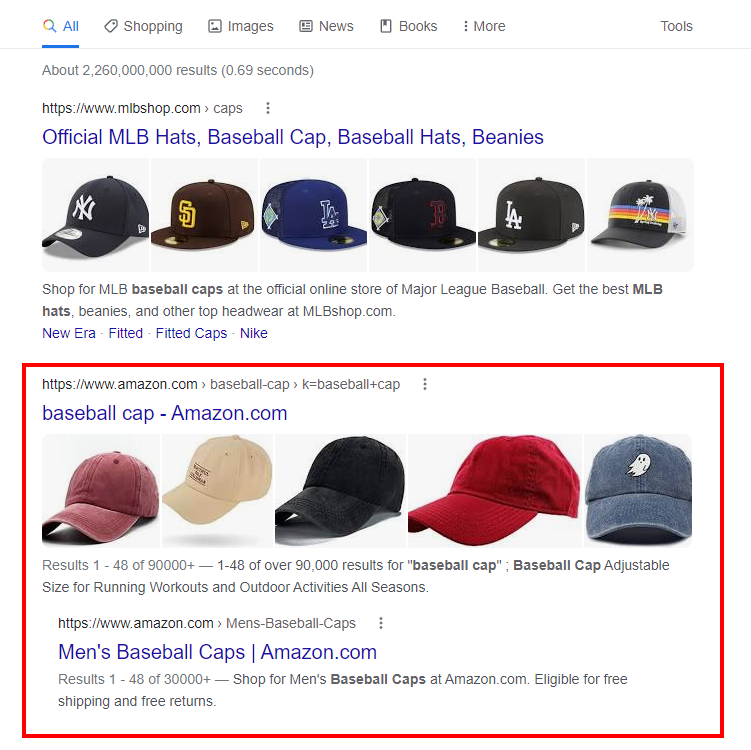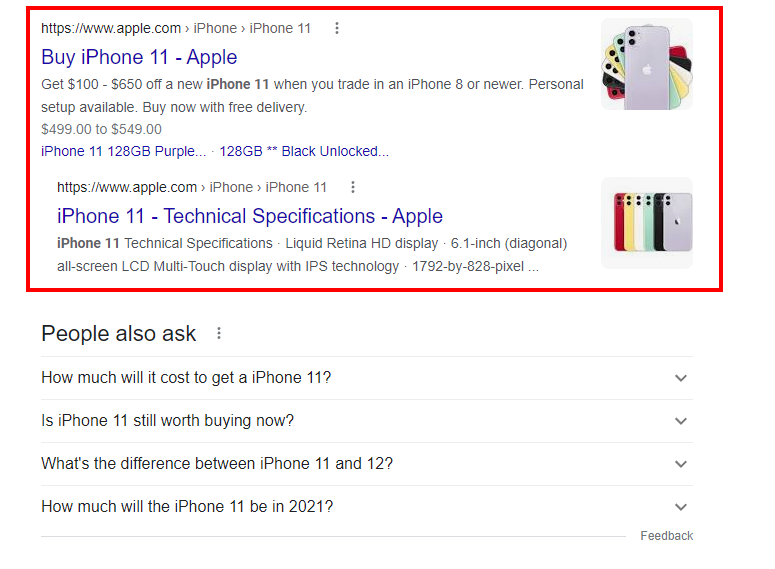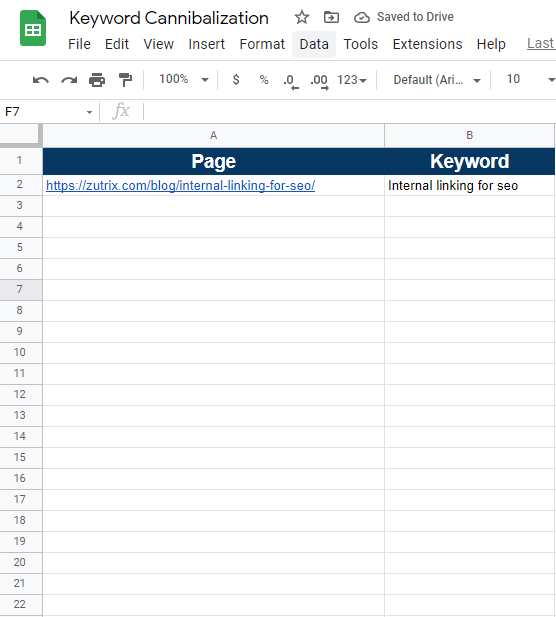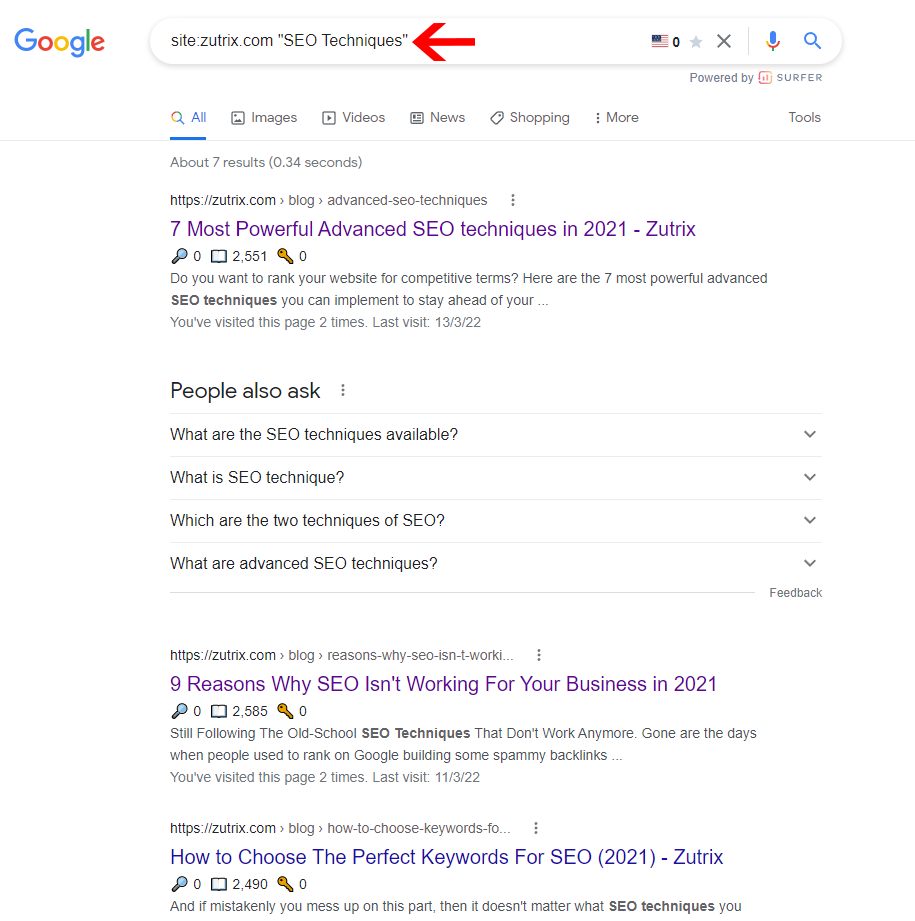What if you can rank multiple pages on the same keyword?
That sounds like a great deal, right?
After all, you’ll dominate the search result with multiple pages and get more visibility.
Well ranking multiple pages on the same keyword might sound like a fantastic thing, but the reality is quite different.
In fact, it’s one of the common SEO mistakes that people make more often.
Ranking multiple pages for the same keyword isn’t a good idea. It even holds you back from performing better in the search results.
As a matter of fact, there’s also a term available in the SEO space that refers to this.
That is – keyword cannibalization.
In this post, we’ll talk about what keyword cannibalization is, how you can identify keyword cannibalization issues on your site and how you can fix this.
This will be a full power-packed post with tons of information and knowledge.
So ready to dive?
Let’s dive in.
Table of Contents
What is Keyword Cannibalization?
Keyword cannibalization occurs when multiple pages of your site target the exact keywords or search query. You’re essentially competing with your own pages on the search results by doing this.
For example, if you have two pages targeting the same keyword, “SEO Tips” and two of these pages are ranking on the first page of Google for the term, it’s splitting your SEO performance.
Moreover, targeting the same keyword also confuses the search engine and makes it difficult to evaluate the worth of your content.
However, this doesn’t mean ranking for the same keyword can penalize your site.
Even some big websites also have keyword cannibalization issues, but you have to avoid it as much as possible.
Why is Keyword Cannibalization Bad For SEO?
SEOs have mixed suggestions on keyword cannibalization.
Some people believe that there’s no such thing called keyword cannibalization. At the same time, some think it’s a serious SEO issue that needs to be solved ASAP.
We won’t be entering into the debate to know which party is correct. But as per our own experience, various studies and all the leading industry SEO experts believe that keyword cannibalization can harm your SEO performance.
But how can it actually harm your performance? After all, ranking multiple pages on the same keyword means more traffic, right?
As we’ve discussed earlier in the post, there is more harm than benefits by ranking multiple pages for the same query.
It basically confuses the search engine to determine which content would be the most valuable for the search term and satisfy the search intent.
And this might push Google to give more weightage to your competitor’s content.
In short, keyword cannibalization is a severe issue that can destroy your keyword performance for no reason.
And the worst part is many people aren’t even aware that they have keyword cannibalization issues on their site.
Here’s why you should often run content audits on your site and try to identify whether your site has cannibalization issues or not.
However, identifying keyword cannibalization issues isn’t that easy (especially if you don’t know the proper process).
But don’t worry.
In the following sections of this post, we’ll show you how you can identify keyword cannibalization issues on your site quite easily.
Not All Keyword Cannibalization is Bad
Now that you know what keyword cannibalization is and why it’s terrible for SEO, we want to clarify that not all keyword cannibalization is bad for you.
In case, if you have an eCommerce website, most likely, multiple pages of your site will rank for the same keyword.
For example, if you search “baseball cap”, you’ll see multiple pages from Etsy, and amazon is ranking on the search results.

So is it wrong?
Of course, no!
Apart from that, if you search for any product like “iPhone 11,” you’ll see apple has multiple pages ranking for the keyword.

Is it keyword cannibalization?
Again, it’s not.
Your website might rank multiple pages on the same keyword for your product or branded keyword, and there’s no harm in this.
How to Identify Keyword Cannibalization
Identifying keyword cannibalization issue is not that difficult.
Most people couldn’t fix this issue because they don’t pay attention to it.
However, if you follow the right process and tactics, identifying keyword cannibalization is like a cakewalk.
In this section, I’ll walk you through some of the ways that you can use to identify keyword cannibalization.
Method #1: Do a Content Audit
If you want to win in search engine optimization, you have to regularly run a content audit on your site.
Content audit not only helps you to evaluate your content quality, find content gaps and new content opportunities.
But it also helps you to identify keyword cannibalization issues of your site.
You can easily spot keyword cannibalization by doing an in-depth content audit.
And it’s relatively the most uncomplicated way too.
However, if you have a massive site with too many pages, it can be challenging to run content audits and spot cannibalization issues.
Method #2: The Spreadsheet Method
If you don’t have any idea or prior knowledge about running a content audit, there’s an easy way available for you too.
That is what we call – “The spreadsheet method.”
In this method, you’ll list down all of your pages and the primary keyword that the pages are targeting in a spreadsheet.
And the spreadsheet somewhere looks like this:

Once you’ve listed down all the pages along with the keywords, use the finder option and enter the keywords one by one.
If you notice any multiple pages targeting a similar kind of keywords and the pages have similar intent too, mark those particular links.
And now again, go ahead and create another spreadsheet and in that sheet list down all the pages that have keyword cannibalization issues.
Now you have to go ahead and fix that one by one.
Method #3: Use Search Modifiers
Another method of identifying keyword cannibalization issues on your site is by using some specific search modifiers.
And this is one of the most efficient and easy methods too.
Just head over to Google and search site:yourwebsite.com “keyword.”
And Google will show you all the pages of your site that have that specific keyword.
For example, here we’ve used the same method and searched for the keyword “SEO Techniques“ for our website.

And as you can see in the picture below, Google quickly came up with all the pages that have this keyword included either in the title or in the content body.
However, there’s a catch.
If you use this method, you might see many pages coming up sometime.
Don’t get scared. It’s not a keyword cannibalization issue.
Whenever you search using this search modifier, Google tries to find out every page that has this specific phrase or word included in any part of the page.
But this doesn’t mean that all of your pages have keyword cannibalization issues.
So for accuracy, you have to filter the results a bit.
How To Fix Keyword Cannibalization
Now that you know how to identify keyword cannibalization, you might be wondering: Is there any way to fix this up?
Well, there are a couple of ways that you can use to fix keyword cannibalization issues on your site.
If you’ve already identified the pages that have cannibalization issues, follow the method we will show you below.
1. Combine The Contents
The best strategy to fix keyword cannibalization is combining the cannibalized content.
Let me explain:
Let’s say you have two posts targeting the same keyword, “SEO Tips” with almost similar content.
Now what you can do is, you can take both of those content pieces, combine the information and create better content.
And then, you can publish the content in any of the already existing URLs, remove the other content from your site, and redirect the deleted content to the new one.
By doing this, you’ll make sure you’re providing the maximum value possible to users in a single post, and your keyword cannibalization issue will be resolved too.
And it will also gradually improve the SERP ranking for that content too.
2. Use Canonical Tags
The canonical tag is basically a snippet of HTML code that defines the main page for the copied or similar content.
Here’s how a canonical tag basically looks: <link rel= “canonical” href= “https://website.com/example-page/”/>
For example,
Let’s assume you have two pages, “10 Advance SEO strategies” and “10 SEO Strategies”.
If both the pages have near to similar content, it might come under the keyword cannibalization zone.
And here, you can use the canonical tag and help Google understand which one is the main version between these two similar contents.
If combining the content doesn’t make sense for you or you don’t have that much time or resources to re-create the pages, you can simply use the canonical tag, and your problem will be solved.
However, setting canonical tags is not a viable option either because Google stated that they see canonical tags as hints, not directives.
Google mostly tries to respect the canonical tag you set, but that’s not always the case.
That’s why, if you have the resources to re-create or combine the contents, it’s the better way to fight keyword cannibalization.
3. No-Index The Pages
It’s the last solution to this problem.
If you’re unable to combine the pages or use canonical tags, you can simply no-index one of the pages that have similar content.
However, it’s the last thing you should try.
And as far as you can, ignore this.
Because no-indexing the page will remove it from the Google index, and it won’t rank for anything.
After all, it’s better to rank for something than ranking for nothing.
Conclusion
Keyword cannibalization is an issue that most websites face (especially when it starts getting bigger).
However, you don’t have to stress about it if you’re having this issue on your site. Google won’t penalize your pages if you target one similar keyword with two different pages.
But it definitely confuses the search engines, and your pages can potentially clash in the search results.
That’s why it’s always better to fix this issue.





